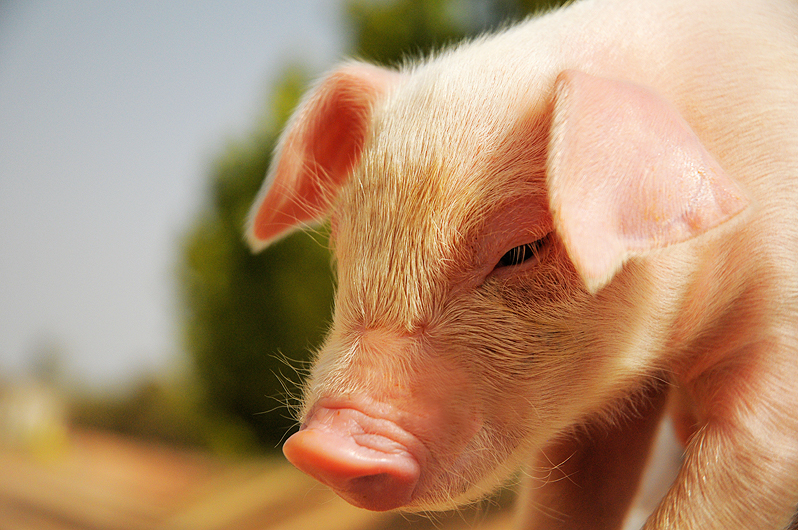Of course, it’s a lot simpler to just change your diet, but Chinese scientists won’t have it that way. They want to cut the fat out of eating bacon, and they’ve managed to do exactly that.
Using new gene-editing techniques, scientists at the Institute of Zoology at the Chinese Academy of Sciences in Beijing, who led the research, say that they’ve created 12 healthy pigs that have 24 percent less fat than normal pigs. These genetically modified pigs are supposed to be less expensive to raise and will suffer less in cold weather – not because of having less fat, but because their body temperatures can be better regulated by the newly edited genes.
There’s little doubt within the scientific community that the paper is technologically very significant. However, the chances of GMO pig meat being approved by the FDA in the United States are much slimmer than the pigs themselves!
Salmon is one exception to the rule, but genetically modified Salmon literally took decades to be approved for sale in the US, and still faces severe opposition from food safety and environmental groups.
On the other side of the argument is the food needs of the planet. Says Chris Davies, associate professor at the Utah State University’s school of veterinary medicine in Salt Lake City:
“The population of our planet is predicted to reach about 10 billion by 2050, and we need to use modern genetic approaches to help us increase the food supply to feed that growing population.”
Will the modifications affect the taste of the meat? The Chinese scientists don’t know for sure, but they’re assuming it won’t. According to Jianguo Zhao, one of the lead scientists for the project:
“Since the pig breed we used in this study is famous for the meat quality, we assumed that the genetic modifications will not affect the taste of the meat.”
The Process of Creating Low-Fat Pigs
Pigs lack a particular gene called UPC1 (uncoupling protein 1), which helps most other mammals regulate body temperature in cold weather. In pigs, the absence of this gene causes them to be prone to fat deposition and unable to protect themselves from the cold.
Using a gene-editing technique called CRISPR-Cas9, the scientists reconstituted the mouse version of the UPC1 gene into pig cells. These cells were then cloned into about 2500 pig embryos, which were implanted into 13 female pigs. Three of these surrogate mothers became pregnant, resulting in 12 male piglets with the modified gene.
Although all 12 pigs were slaughtered at six months for their bodies to be analyzed, at least one of the male pigs mated before then, producing healthy offspring.
The implications are profound, to say the least. While there will always be opposition to genetically modified foods, the reality could be that it may be essential in order to feed the teeming billions around the world over the coming decades.
Thanks for visiting. Please support 1redDrop on social media: Facebook | Twitter



